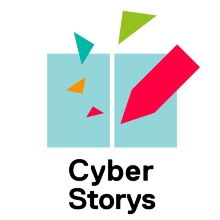Participatory research: With the idea of bringing students and researchers together through storytelling, the AI short story competition Cyber Storys is one of the winners of the university competition for the Year of Science 2022 – Participate!. The university competition invites researchers and citizens to actively participate in the research process and work together to meet the challenges of the future. The jury selected the best 15 project ideas from 270 submissions. The Stuttgart-based Cyber Valley project will receive 10,000 euros to run the short story competition until the end of 2022.
Cyber Storys
“Should a robot clean your room? Should a computer decide which school you can go to? How do you imagine your life with artificial intelligence? Shape the future with your ideas!” This is the call with which Cyber Storys will be launched from March 28, 2022. Pupils from Baden-Württemberg from the seventh school year onwards can submit their visions for the future with artificial intelligence online, either individually or as a class group, by June 3 and thus provide new impetus for future AI research in the form of narratives. The competition is open to all types of schools and is also aimed at vocational schools. A jury will select the winners at the Stuttgart Science Festival.
Cyber Storys provides insight into AI research and makes AI ethics tangible with the help of one’s own creativity. The project focuses on young people and young citizens, in line with the motto of the Year of Science 2022 – Participate!. It enables them to contribute their visions of the future to research and science to learn from these impulses. Through the creative form of participation, Cyber Valley aims to awaken young people’s curiosity about AI and impart knowledge. After all, only those who have basic technology skills can classify AI, shape it, and represent their own interests.
AI teaching materials and writing workshops
To help create exciting stories, Cyber Storys offers a variety of support.
Free educational materials such as an artificial intelligence e-learning course, a workbook, and a teacher’s guide provide basic AI knowledge. The materials will be available at the end of March on the short story contest website. How AI can be addressed in the classroom is the topic of the “Train the trainer” workshops for teachers.
In writing workshops in city libraries in the Stuttgart/Tübingen area, young people are supported in the writing process and can meet researchers. Dates will be announced via the project website.
Networking of institutions in the region
Cyber Storys is coordinated by Cyber Valley and is created in cooperation with many institutions. The city libraries of Stuttgart, Tübingen, Leinfelden-Echterdingen and Esslingen are participating with, among other things, writing workshops, themed shelves with media related to AI, and readings of the winning stories. The educational materials are offered by Cyber Valley in collaboration with the Stuttgart Research Focus Interchange Forum for Reflecting on Intelligent Systems (SRF IRIS) at the University of Stuttgart and the Landeszentrale für politische Bildung Baden-Württemberg.
Cyber Valley Public Engagement Manager Rebecca Beiter would like to use the prize money from the university competition for more dialogue: “Not only can we use it to host the writing competition, but we can use the stories as a low-threshold entry point for subsequent readings and dialogue formats between AI researchers and citizens.” Beiter is also excited about the networking and training in science communication, because in addition to financial support, the university competition offers workshops and training for the winning teams. The teams provide regular updates on progress and challenges in project implementation on the university competition blog: www.hochschulwettbewerb.net.
The university competition is organized annually by Wissenschaft im Dialog (WiD) in cooperation with the German Association of University Communication and the German Rectors’ Conference and is funded by the German Federal Ministry of Education and Research as part of the Year of Science.


